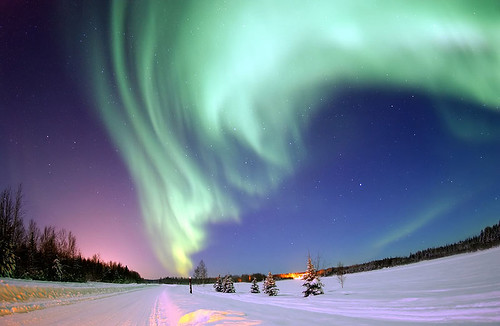The recently finished BBC Stargazing Live event once more turned the nation into stargazing astronomy buffs. It was further evidence that these days, science is cool. Here’s a look at how this happened, and how you can get involved.

image – Image Editor flickr
A brief history of recent science on TV
By the mid noughties the prognosis for science in the UK was grim. Popular scientific TV shows such as Q.E.D. on the BBC and Equinox on Channel 4 had been canned, leaving Horizon as the only flag-bearer for primetime scholarship. In universities across the country subjects such as astronomy and physics were being shunned.
Then a few things started happening. In June 2006 Horizon announced that they would offer a more light-hearted approach to science, embracing a ‘Pure Science, Sheer Drama’ motto. The change in approach signalled a renaissance in TV science and more quality programmes began appearing.
Things can only get better
Brian Cox, a young professor in particle physics, had presented a couple of shows for Horizon before 2006 but the new format suited his pop-star looks and laid-back, engaging personality. Professor Cox had already had a taste of stardom as keyboard player with pop band D:Ream in the 90s, chalking up a number 1 hit with ‘Things Will Only Get Better’. Now he was bringing a bit of that showbiz to science on TV.
After presenting several more programs for the Horizon series he started branching out on his own, first with ‘The Big Bang Machine’ in 2008 then the enormously popular ‘Wonders of the Solar System’ that brought spectacular, big ideas of astronomy into living rooms across the nation. So far, so educational. But the popular scientific revolution was far from over.

Image – USDAgov flickr
How science got its cool
It was around 2006 that science started creeping into popular culture too – mainly thanks to exports from the US. Sure, when ‘Beauty and the Geek’ was commissioned in 2005 the programme makers may not have been interested in a flattering portrayal of the scientifically minded youth but the reality TV dating show started to fire the imagination.
Partnering socially awkward, intellectually gifted men with gorgeous women and then having them undertake a bunch of embarrassing challenges did not make geeks, nerds and boffins cool, but it did give them a place in popular culture – and it could be pretty funny.
The makers of ‘The Big Bang Theory’ came to the same conclusion when they launched the sitcom in 2007. Since then it has gone on from strength to strength with its self-aware and clever play on the traditional stereotypes that exist around scientific types.
Looking up is looking up
Science got its cool and has continued to grow in popularity ever since. In education, applications for astronomy courses at universities shot up 40% between 2010 and 2011 – and the wave of TV shows bringing mind-boggling science into our homes continues to throw up quality entertainment.
The second instalment of the Stargazing Live BBC event confirms that this is the case. Stargazing Live, fronted by Professor Cox and comedian Dara O’Briain, was once again a massive success, encouraging people up and down the country to pick up their binoculars and telescopes and take to the night to study the heavens above.
Now that the event is over you might be asking yourself how you might be able to get involved. The good news is there are loads of ways that you can have your mind enlarged by contemplating the big questions.

image – NASA flickr
What you can do
Here are just a few of the things you can do if you feel inspired by the glories of the night sky.
- Take an astronomy-inspired break: There are world-class centres of astronomy around the UK but why not go abroad to enjoy some of the offerings available? The digital Planetarium in Donetsk in the Ukraine is one of the best in the world, offering visitors the chance to take a spectacular virtual tour around the universe using hi-tech laser and light technology. Within easy reach of several hotels in Donetsk, the planetarium is well worth a visit.
- Do a course: You don’t have to get a PhD in astrophysics to understand astronomical concepts. There is a wealth of courses available that can take you through the basics of star gazing. Check your local council and educational institutions to see what they have on offer. And if you’d like something more challenging the Open University offers several modules on astronomy that you might enjoy.
- Buy a star: Telescopes around the world are discovering new stars all the time and enterprising registry services allow you to pay to choose the name of these new heavenly bodies. Maybe you could name it after a loved one as a gift, or maybe you would prefer to name it after yourself. Whatever you choose, be aware that your name is unlikely to appear on the star charts of astronomical organisations around the world. They won’t recognise your star purchase, no matter what the certificate you get says.
What do you love about astronomy?
